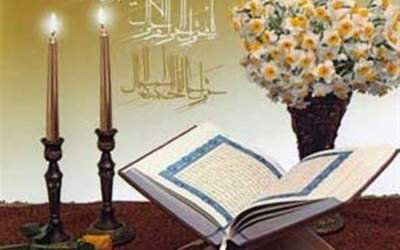The Iran Project
: For those who believe that everything should be examined negated and proven from the perspective of religion, this question is raised whether the Islamic religion and religious leaders have a special stance on Nowruz (Persian New Year) or not.
In general, it can be said that there are two types of narratives in the Shia texts; The first category is the narrations in which the Iranian tradition of Nowruz is confirmed and the "Day of Nowruz" is considered auspicious.
The second category includes narrations that did not confirm this Nowruz and considered it as a tradition against Islam.
Here are examples of these two types of narrations.
1. First type of narratives
Moa'alli bin Khonays quoted a narrative from Imam Sadegh (AS), in which, while marking Nowruz, various historical events coincided with Nowruz.
This narration is famous and some scholars have cited it.
Khonays said, "I visited Imam Sadegh (AS) on the day of Nowruz, and he told me do you know this day?
This day is a day that non-Arabs (Iranians) honor and give gifts to each other, he answered.
I swear by the ancient house in Mecca, this ritual has a long and old root and I will explain it to you, the sixth Shia Imam said, adding, "Nowruz is the day on which God made a covenant with humans to worship none but Him and not to associate partners with Him and to follow His prophets. Nowruz is the first day on which the sun rose and the wind blew, and on that day the brightness of the earth was created. Nowruz is the day when Noah's ark landed on Mount Judi, and Nowruz is the day when people who died returned to the world again."
It is on this Nowruz that Gabriel descended on Prophet Mohammad (PBUH) and it is on this very day that the Prophet of Islam put Hazrat Ali (AS) - first Shia Imam - on his shoulder so that he pulled down the idols of the Quraysh from Beit al-Haram and smashed them.
Nowruz is the day when the Prophet Mohammad (PBUH) ordered his companions to pay allegiance to Hazrat Ali (AS) as the caliphate and the guardianship of the believers.
Nowruz is the day when the Shia hidden Imam appears on that day, and finally, Nowruz is the day when Imam Mahdi (hidden Imam) defeats Dajjal on this day and hangs him on the garbage dump of Kufa. And there is no Nowruz unless we expect the reappearance of ّImam Mahdi on that day because this day is one of our days, which Iranians honor, but you wasted it.
What can be realized from the above hadith is the day of Nowruz has a deep connection with the issue of guardianship and leadership of Muslims. Therefore, it is appropriate to consider Nowruz as a celebration of guardianship and to await the reappearance of the savior of mankind, Imam Mahdi (AS) on this day.
Historically, the Ghadir Khumm event happened on 16 March 632 CE, which is also confirmed by this narration.
2. Second type of narratives
A narrative from Imam Musa bin Jafar (AS) has been quoted, which indicates the disapproval of the Nowruz tradition by the Islamic leaders. The narrative is as follows:
It is said that Mansour sent to Imam Kazem (AS) to sit for congratulations on Nowruz day.
I examined the speeches of my grandfather, prophet Mohammad (PBUH), and I did not find anything about this Eid, this is the tradition of Iranians, which Islam has erased, the 7th Shia Imam told Mansour.
Mansour answered that we do this to entertain the army and for the sake of God I asked you to attend this ceremony and then Imam accepted.
Most scholars have rejected this narrative. For instance, Allameh Majlesi has said that Moa'alli's narrative is more valid than this one.
On the other hand, in the second narrative, Imam Kazem (AS) answered this way because Mansour can not use it politically.
Also, Nowruz was famous during the era of Shia imams, and the Iranians who were around the imams celebrated Nowruz. If Shia imams were opposed to it, their opposition was recorded in history.
Moreover, there is no other narrative except this one which is doubtful in terms of document and content.
The last point is that many religious elders have recognized and approved this day.
Author : Ghasem Ghorbani
# Tags












